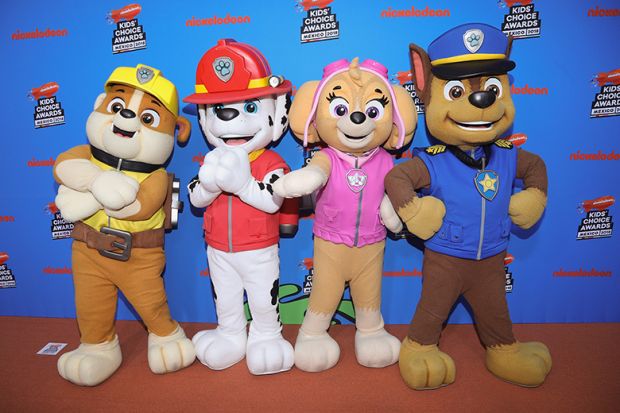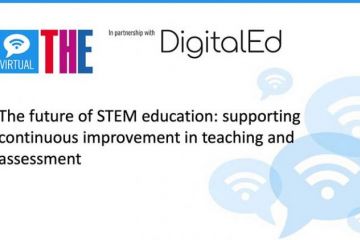With many academics spending weeks indoors with their young children, it was only a matter of time before their critical gaze drifted to kids’ TV.
And while the scholarly attention devoted to programmes such as PJ Masks, Go Jetters and Ben and Holly’s Little Kingdom has generated some unexpectedly metaphysical reflections, there is one show on which academics have focused: PAW Patrol.
In a sign of our unusual times, Philip Cowley, professor of politics at Queen Mary University of London, tweeted on 9 April about an apparent plot hole in the Canadian CGI-animated show about a team of talking dogs and their rescue missions in Adventure Bay.
Referring back to the season one episode “Pups Get a Rubble”, “in which Rubble joined as a grown-up dog”, Professor Cowley wondered how this was possible given that in season three’s “Pups Save the Mayor’s Tulips”, “Ryder shows his collection of things from when the pups were babies, including Rubble’s rug”.
“My world is rocked,” joked Professor Cowley, known for his research on British electoral politics.
That observation on 9 April triggered an enthusiastic response from those in academia and the political world with similarly detailed knowledge of the canine rescuers.
Robert Colvile, director of the Centre for Policy Studies, the free market thinktank, wondered “why, if it’s an emergency, Ryder takes the time to draw little caricatures of the situation” or, if they have “Ultimate Rescue vehicles in the basement, why do they ever bother using anything else”?
That thread inspired a host of reflections on other children’s TV shows, including a problematic episode of Peppa Pig in which Peppa and a friend enjoy a trip to the zoo. “Who decides which animals are fit to be valued members of society, with the right to go to school, have jobs, wear clothes & own homes, and which ones have to live behind bars,” said one follower.
“From my conversations with fellow academics who have kids, they’re pretty well up on TV, both the good and the bad, and there’s a lot of bad,” Professor Cowley told Times Higher Education.
“PAW Patrol is one of those that does get them riled, though − I think it’s because it has few redeeming features,” he said, adding that “academics, being earnest sorts, will like the stuff from which kids learn things, even if they also get your kids to pressure you to buy plastic tat”.
Those looking for more sustained analysis on the subject, though, should search out a recent paper by Liam Kennedy, assistant professor of sociology at Western University in Canada, titled “Whenever there’s trouble, just yelp for help: crime, conservation, and corporatization in PAW Patrol”, published in the journal Crime, Media and Culture, which argues that the show propagates an anti-government, pro-capitalist message.
“Politicians are presented as incompetent or unethical, and the state, either incapable of delivering or unwilling to provide basic social services to citizens, relies on the PAW Patrol corporation to investigate crime, rescue non-human animals in states of distress, and recycle,” argues Dr Kennedy. “PAW Patrol echoes core tenets of neoliberalism and encourages complicity in a global capitalist system that (re)produces inequalities and causes environmental harms,” he concludes.
That critique, published in February, sparked an unusually strong pushback, mostly from US right-wing media. It even led Canada’s leader of the opposition Andrew Scheer to record a special video message on the topic, in which he labelled Dr Kennedy “kooky” and condemned coverage of his “social justice warrior worldview” analysis before launching his own defence of capitalism and privately delivered public services.
“I’m glad to hear that scholars and parents are taking a more critical look at media their children are consuming,” Dr Kennedy told THE. “I hope that continues post-pandemic.”
Register to continue
Why register?
- Registration is free and only takes a moment
- Once registered, you can read 3 articles a month
- Sign up for our newsletter
Subscribe
Or subscribe for unlimited access to:
- Unlimited access to news, views, insights & reviews
- Digital editions
- Digital access to THE’s university and college rankings analysis
Already registered or a current subscriber?










